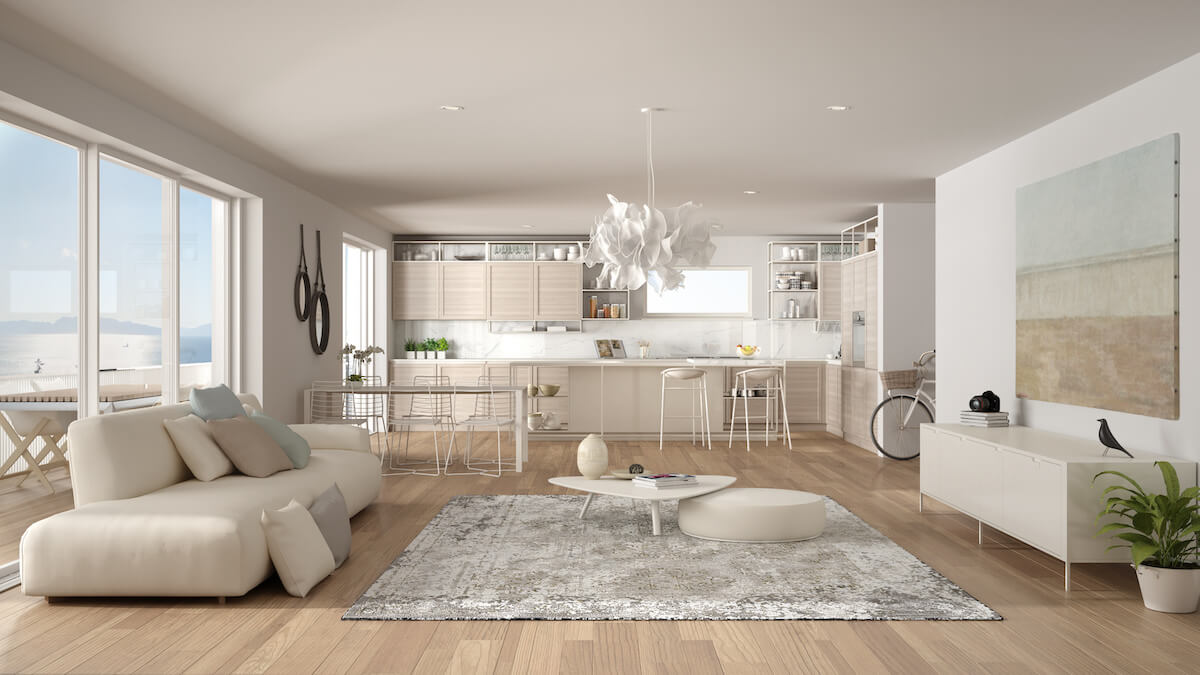All Categories
Featured
When creating a living-room, selecting the best furnishings style plays a crucial duty in establishing the tone and atmosphere of the area. From classic standards to contemporary innovations, there are various furnishings styles offered to suit every aesthetic and preference. Here, we discover several of one of the most popular furniture designs for living space spaces, aiding you make an informed choice to match your taste and lifestyle.
Typical furniture exudes beauty and sophistication, often motivated by 18th and 19th-century European designs. Anticipate to discover ornate detailing, rich timber surfaces, and luxurious textiles like velvet or brocade. Parts such as tufted couches, wingback chairs, and intricately sculpted coffee tables are staples of this design. Typical furniture produces a warm and inviting environment, suitable for those that value ageless layout.
Modern furnishings emphasizes tidy lines, simplicity, and capability. Commonly crafted from products like timber, metal, and glass, contemporary pieces have a sleek and uncluttered appearance. Neutral color combinations control this design, with pops of bold shades conserved. A minimal couch coupled with a geometric coffee table is a perfect example of contemporary living room furniture.
While typically perplexed with modern-day design, modern furnishings is more fluid and adapts to current trends. This design blends different aspects from different amount of time, causing a flexible and ever-evolving visual. Contemporary living space furnishings often includes modular couches, mixed-material coffee tables, and declaration lighting pieces that add character to the room.
![]()
Promoted in the mid-20th century, this style is characterized by its retro vibe and emphasis on functionality. Trick attributes consist of conical legs, organic forms, and a mix of natural and synthetic products. Renowned mid-century modern furnishings items like the Eames easy chair or a low-profile couch include a touch of fond memories and elegance to any kind of living-room.
Motivated by metropolitan lofts and warehouses, industrial furniture incorporates basic materials like steel, redeemed wood, and concrete. This style frequently features subjected equipment, weather-beaten finishes, and a neutral color scheme. Industrial-style living area furnishings includes things like metal-framed coffee tables, leather sofas, and open shelving devices that create a tough yet chic look.
Rustic furnishings commemorates all-natural charm and workmanship, often showcasing raw timber, rock, and natural tones. This style brings the outdoors inside, creating a cozy and inviting environment. Rustic living room furnishings may consist of reclaimed wood coffee tables, overstuffed sofas, and woven rugs that stress comfort and simplicity.
For those that love care free and diverse style, bohemian furnishings uses a mix of appearances, patterns, and colors. This design urges creativity and customization, typically featuring rattan chairs, patterned cushions, and vintage or handcrafted pieces. A bohemian living-room is excellent for showcasing your uniqueness.
Recognized for its minimalism and performance, Scandinavian furniture combines type and practicality. With light timber tones, neutral shades, and easy styles, this design creates a serene and clutter-free setting. Common components include comfortable sofas, smooth coffee tables, and soft cushions or tosses to boost convenience.
![]()
Transitional furniture bridges the space in between modern and conventional styles. It blends traditional sophistication with modern simplicity, resulting in a unified and well balanced look. Neutral tones dominate this design, with clean-lined couches and understated coffee tables that work well in practically any kind of living space setup.
Regardless of your choice, there's a furnishings style to match your living room vision. Take time to discover these alternatives, and don't wait to mix and match styles to develop a room that's distinctly your own.
- Conventional Style
Typical furniture exudes beauty and sophistication, often motivated by 18th and 19th-century European designs. Anticipate to discover ornate detailing, rich timber surfaces, and luxurious textiles like velvet or brocade. Parts such as tufted couches, wingback chairs, and intricately sculpted coffee tables are staples of this design. Typical furniture produces a warm and inviting environment, suitable for those that value ageless layout.
- Modern Style
Modern furnishings emphasizes tidy lines, simplicity, and capability. Commonly crafted from products like timber, metal, and glass, contemporary pieces have a sleek and uncluttered appearance. Neutral color combinations control this design, with pops of bold shades conserved. A minimal couch coupled with a geometric coffee table is a perfect example of contemporary living room furniture.
- Contemporary Design
While typically perplexed with modern-day design, modern furnishings is more fluid and adapts to current trends. This design blends different aspects from different amount of time, causing a flexible and ever-evolving visual. Contemporary living space furnishings often includes modular couches, mixed-material coffee tables, and declaration lighting pieces that add character to the room.
- Mid-Century Modern Design

Promoted in the mid-20th century, this style is characterized by its retro vibe and emphasis on functionality. Trick attributes consist of conical legs, organic forms, and a mix of natural and synthetic products. Renowned mid-century modern furnishings items like the Eames easy chair or a low-profile couch include a touch of fond memories and elegance to any kind of living-room.
- Industrial Design
Motivated by metropolitan lofts and warehouses, industrial furniture incorporates basic materials like steel, redeemed wood, and concrete. This style frequently features subjected equipment, weather-beaten finishes, and a neutral color scheme. Industrial-style living area furnishings includes things like metal-framed coffee tables, leather sofas, and open shelving devices that create a tough yet chic look.
- Rustic Design
Rustic furnishings commemorates all-natural charm and workmanship, often showcasing raw timber, rock, and natural tones. This style brings the outdoors inside, creating a cozy and inviting environment. Rustic living room furnishings may consist of reclaimed wood coffee tables, overstuffed sofas, and woven rugs that stress comfort and simplicity.
- Bohemian Style
For those that love care free and diverse style, bohemian furnishings uses a mix of appearances, patterns, and colors. This design urges creativity and customization, typically featuring rattan chairs, patterned cushions, and vintage or handcrafted pieces. A bohemian living-room is excellent for showcasing your uniqueness.
- Scandinavian Style
Recognized for its minimalism and performance, Scandinavian furniture combines type and practicality. With light timber tones, neutral shades, and easy styles, this design creates a serene and clutter-free setting. Common components include comfortable sofas, smooth coffee tables, and soft cushions or tosses to boost convenience.

- Transitional Design
Transitional furniture bridges the space in between modern and conventional styles. It blends traditional sophistication with modern simplicity, resulting in a unified and well balanced look. Neutral tones dominate this design, with clean-lined couches and understated coffee tables that work well in practically any kind of living space setup.
Regardless of your choice, there's a furnishings style to match your living room vision. Take time to discover these alternatives, and don't wait to mix and match styles to develop a room that's distinctly your own.
Latest Posts
A Lavish Getaway: The Claridge Indoor Pool
Published Feb 11, 25
1 min read
Furnishings Styles Living Space
Published Jan 23, 25
0 min read
What Variables Impact the Expense of Significant Automobile Repair Services
Published Jan 16, 25
0 min read